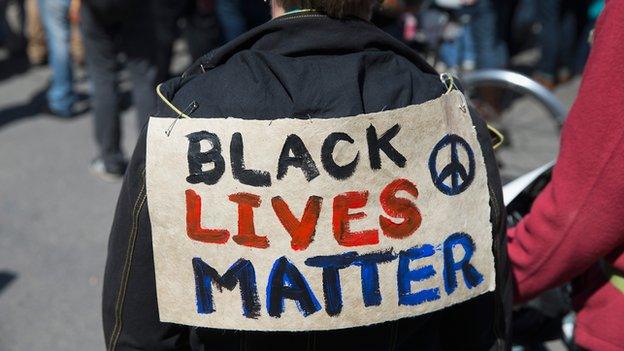Laquan McDonald: Chicago officers cleared of shooting cover-up
- Published
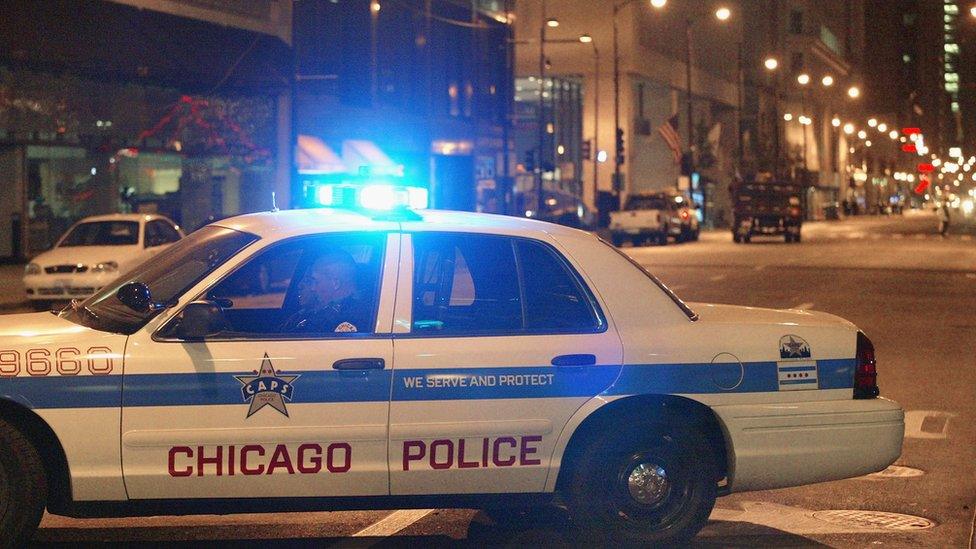
A judge has acquitted three Chicago police officers of trying to cover up the 2014 fatal police shooting of black teenager Laquan McDonald.
David March, Joseph Walsh and Thomas Gaffney were found not guilty of committing conspiracy, obstruction of justice and official misconduct.
The judge said prosecutors failed to prove a coordinated conspiracy.
Jason Van Dyke, who killed McDonald, was convicted of second degree murder and will be sentenced on Friday.
Prosecutors had argued that ex-Detective March, ex-Officer Walsh and suspended Officer Gaffney went beyond following a police "code of silence", and that their individual reports about the incident displayed a uniformity that could only have come from a conspiracy.
They argued in court that the officers filed false paperwork that described McDonald as the aggressor, and officers as victims of violence at the hands of the teen.
On Thursday, Cook County Judge Domenica Stephenson ruled the state had not met the burden of proof to merit convictions.
"The evidence shows just the opposite," she said.
Judge Stephenson pointed out that the police video at the centre of the case had been preserved.
According to the Associated Press, officers in the court erupted in applause as the verdict was announced.
What's the background?
Police dashcam video from 2014 showed white Officer Jason Van Dyke shooting McDonald 16 times as the 17-year-old walked down the road holding a pocket knife.
According to the Chicago Tribune, external, which called the verdict "stunning", the case was considered to be the first time in the city's history that police officers have faced criminal charges stemming from an on-duty shooting.
Prosecutors alleged the three officers falsified reports and tried to conceal the events surrounding McDonald's death "to shield their fellow officer from criminal investigation".
"The defendants allegedly lied about what occurred and mischaracterised the video recordings so that independent criminal investigators would not learn the truth about the killing and the public would not see the video recordings," they said when charges were announced in June 2017.
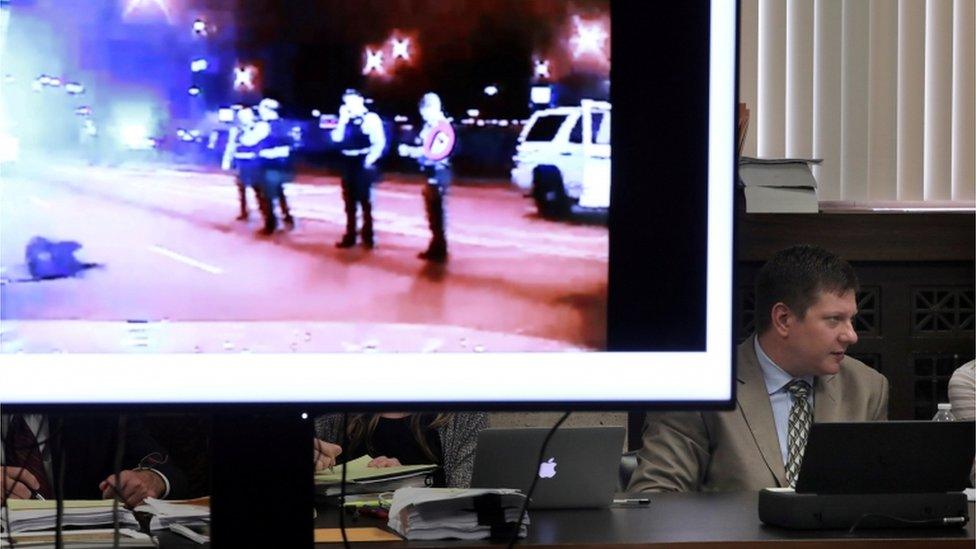
Jason Van Dyke (pictured) has been found guilty of killing the black teenager
What did the judge rule?
Before announcing her ruling Judge Stephenson told the courthouse that her job was not simply to compare the officers reports to the dashcam video of McDonald's death.
"We cannot now view the actions of the officers with the benefit of hindsight as to what they should have believed," she said, adding that taken together, the officers reporters "were able to accurately detail the events of that evening".
"McDonald was an armed offender who ignored commands to drop the knife," she said.
After the ruling, Rev Marvin Hunter, McDonald's great-uncle, called the entire criminal justice system "corrupt".
"This is not justice," he said outside the court.
"I am surprised... that this judge would take it upon herself to make the entire country know what I've known all the time, that justice is justice for everybody but African Americans in this county".
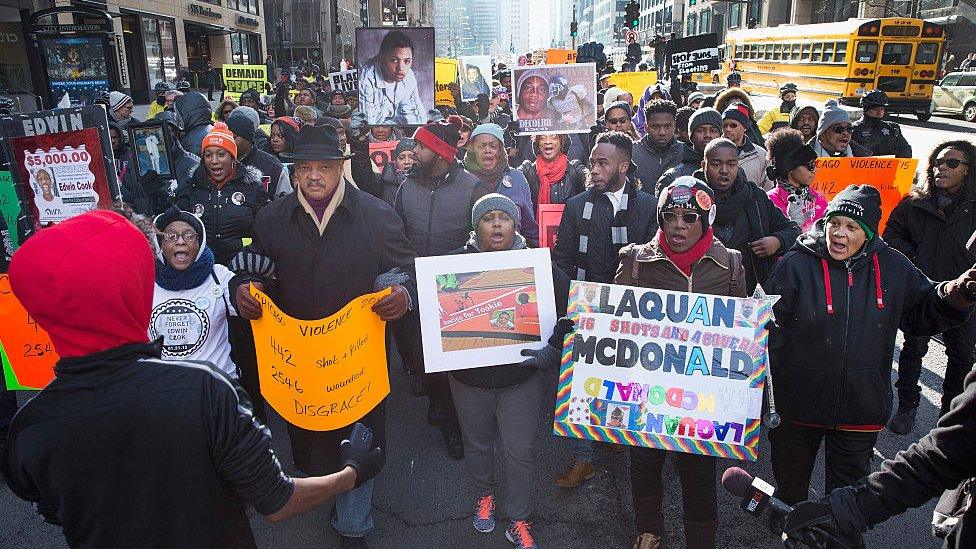
Protesters marched in Chicago after the city released dashcam footage showing Laquan McDonald's death.
After a trial in October, Van Dyke was found guilty of second-degree murder as well as 16 counts - one for each shot he fired - of aggravated battery.
He is due to be sentenced by a different judge on Friday.
- Published27 June 2017
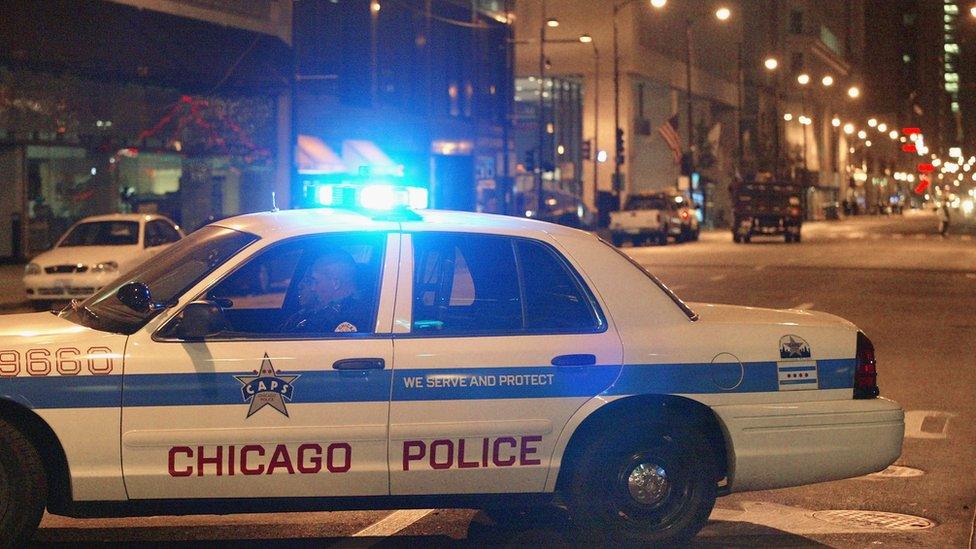
- Published26 May 2015
